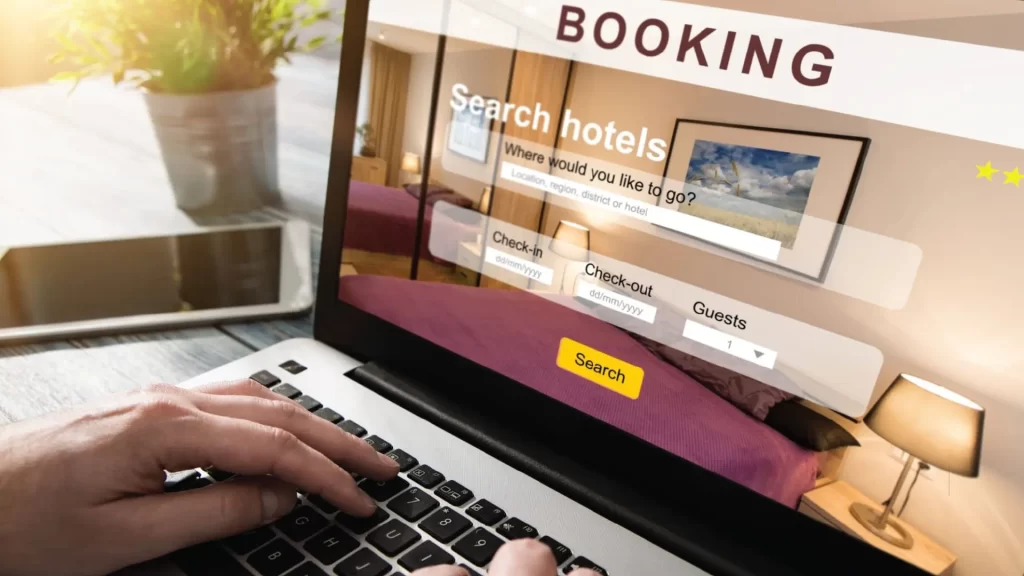In today’s digital age, a well-designed website is no longer a luxury for South African hotels, it’s a necessity.
Your website is the window to your establishment, showcasing your unique offerings and persuading travelers to choose your haven over countless competitors.
Get ready to turn website visitors into loyal guests!
1. Embrace the Local Landscape:
Imagine you manage a boutique hotel nestled in the Cape Winelands.
Your website should reflect the charm and beauty of the region.
Use images that showcase your surroundings, whether it’s the rolling vineyards or the majestic Table Mountain in the distance.
2. Mobile Responsiveness:
In an era where travelers use their smartphones to plan their trips, ensuring your website is mobile-responsive is non-negotiable.
From checking room availability to browsing photo galleries, your site should offer a seamless experience on any device.
3. User-Friendly Navigation:
Keep navigation simple and intuitive.
Visitors should easily find essential information like “Rooms & Rates,” “Dining Options,” “Local Attractions,” and “Contact.”
If your hotel boasts a renowned spa, create a dedicated section for “Relaxation & Wellness.”
4. Stunning Visuals:
High-quality images are your best friend.
Showcase your hotel’s rooms, facilities, and dining options in all their glory.
If your suites offer panoramic ocean views, ensure you capture this breathtaking feature.
5. Booking Convenience:
Implement a user-friendly booking system.
Guests should be able to check availability, rates, and make reservations effortlessly.
If you offer special packages like “Safari Adventure,” make them easily accessible.
6. Local SEO:
For hotels, local SEO is paramount. Optimize your website for local keywords, such as “Cape Town Waterfront Hotel” or “Durban Beachfront Accommodation.”
This ensures that travelers looking for a place to stay in your area can discover your hotel.
7. Guest Reviews:
Incorporate authentic guest reviews and ratings.
Displaying positive experiences can build trust and help potential guests make informed decisions.
For instance, if guests rave about your “Gourmet Breakfast,” feature their testimonials.
8. Engaging Storytelling:
Every hotel has a unique story. Share yours on your website.
Describe the history, inspiration, and distinctive features of your establishment.
Whether it’s a heritage hotel or an eco-friendly lodge, give your visitors a glimpse into your narrative.
9. Social Media Integration:
Leverage the power of social media to engage with your audience.
Integrate social sharing buttons, and showcase your social media feeds to keep your website dynamic and interactive.
If your hotel is known for “Sunset Cocktails,” feature stunning sunset photos from your Instagram.
10. Lightning-Fast Loading Speed:
A sluggish website can deter potential guests. Optimize your site for quick loading speeds.
Compress images and eliminate unnecessary elements to ensure a swift and pleasant user experience.
11. Multi-Language Support:
South Africa’s diverse culture and tourist base call for multilingual support.
If your hotel attracts international guests, provide content and booking options in multiple languages, such as English, Afrikaans, and French.
12. Virtual Tours:
Imagine you’re running a luxury safari lodge. Offer virtual tours or 360-degree views of your accommodations, wildlife, and common areas.
Allow your guests to virtually step into the “African Safari Experience.”
Conclusion: Elevating the Guest Experience
For South African hotels, a well-crafted website is the gateway to memorable stays and incredible experiences.
By following these website design tips and incorporating real-life examples, hotels can provide a digital preview of the magic they offer.
In a land known for its diverse landscapes and warm hospitality, your website should be as inviting and captivating as your establishment.

















